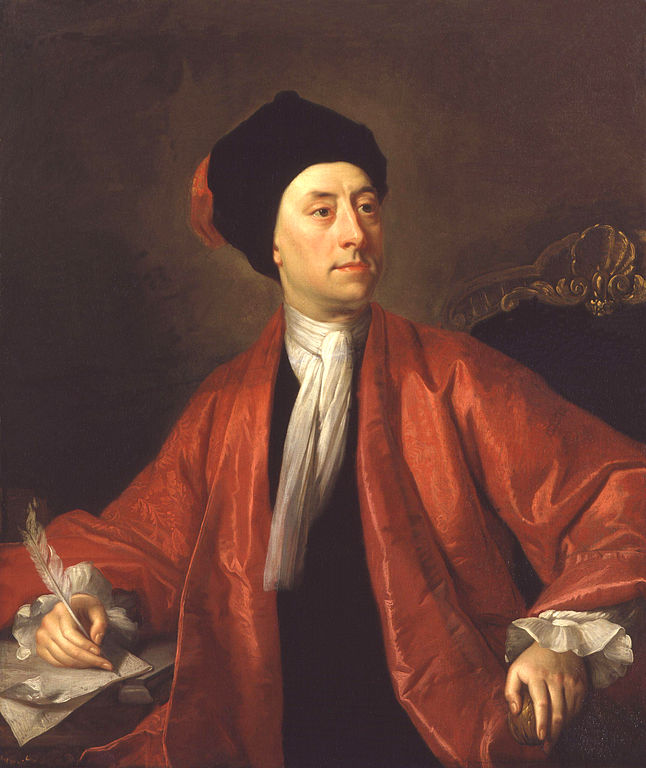
Matthew Prior (1664-1721) was an English poet and diplomat, whose poetry knew fame at the beginning of the 18th century. One of his most famous poems is “To a Child of Quality, Five Years Old, The Author Forty” (1704). Requested to write his love for a 5 years old little girl, he complies, but she cannot read his poems, she plays with the paper on which they are written; when she will reach an age where she can understand them, he will be too old for love. Indeed, as writes Prior’s biography by the Poetry Foundation:
In this poem Miss Mary (Lady Mary Villiers, daughter of Edward Villiers, First Earl of Jersey) rolls up her hair and makes beds for her silkworms from the love poems Prior has written her. Prior adds four years to his real age to intensify his contention that their possible love affair is defeated by time: “For as our different Ages move, / ‘Tis so ordain’d wou’d Fate but mend it, / That I shall be past making Love, / When she begins to comprehend it.”
TO
A CHILD of QUALITY,
FIVE YEARS OLD,
The AUTHOR FORTY. 1704.
I.
LORDS, knights, and squires, the num’rous band,
That wear the fair miss MARY’s fetters,
Were summon’d by her high command,
To show their passions by their letters.
II.
My pen amongst the rest I took,
Lest those bright eyes that cannot read
Shou’d dart their kindling fire, and look,
The power they have to be obey’d.
III.
Nor quality, nor reputation,
Forbid me yet my flame to tell,
Dear five years old befriends my passion,
And I may write till she can spell.
IV.
For while she makes her silk-worms beds,
With all the tender things, I swear,
Whilst all the house my passion reads,
In papers round her baby’s hair.
V.
She may receive and own my flame,
For tho’ the strictest prudes shou’d know it,
She’ll pass for a most virtuous dame,
And I for an unhappy poet.
VI.
Then too alas! when she shall tear
The lines some younger rival sends,
She’ll give me leave to write I fear,
And we shall still continue friends.
VII.
For as our diff’rent ages move,
‘Tis so ordain’d, wou’d fate but mend it,
That I shall be past making love
When she begins to comprehend it.
Source of the poem: Miscellaneous works of His late Excellency Matthew Prior Esq.; second edition, edited by Adrian Drift, London (1740). Hypertext transcriptions of the poem, with changes in spelling and punctuation, can be found on My poetic side, Bartebly, EnglishVerse.com, and Poeticous.

